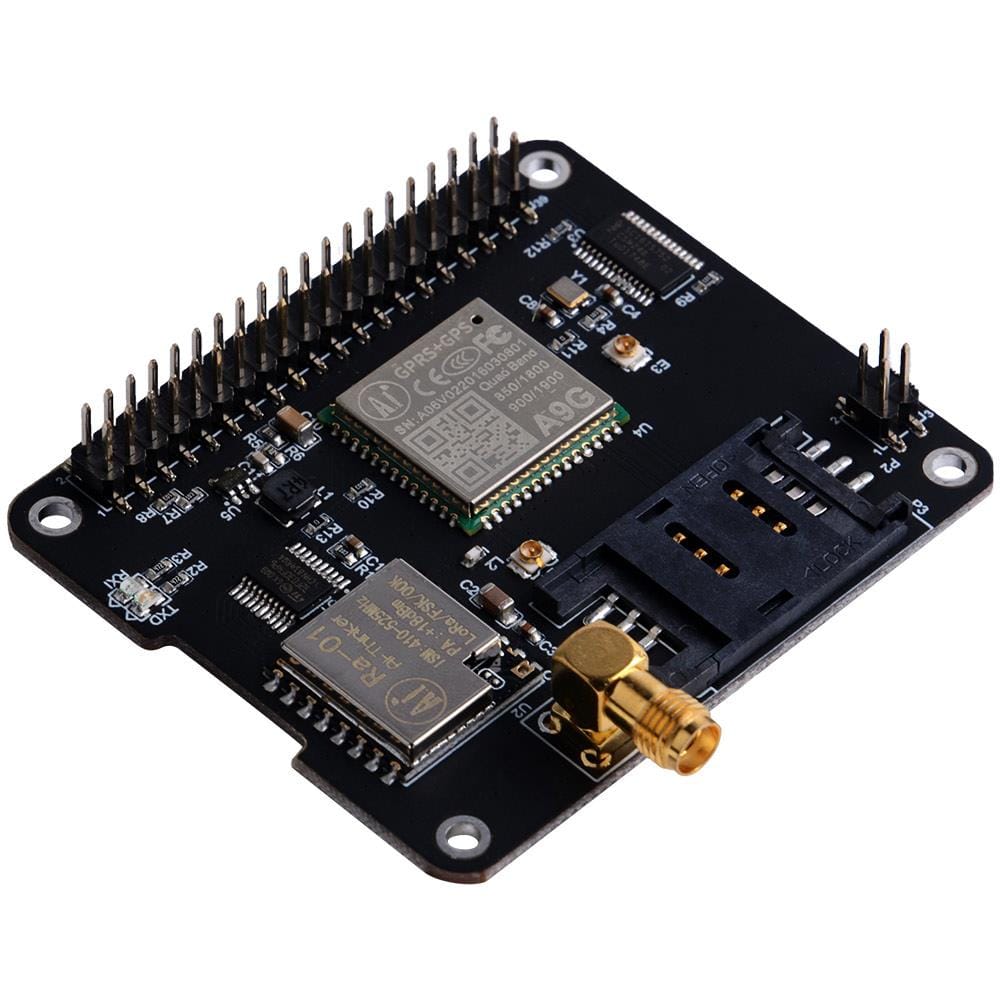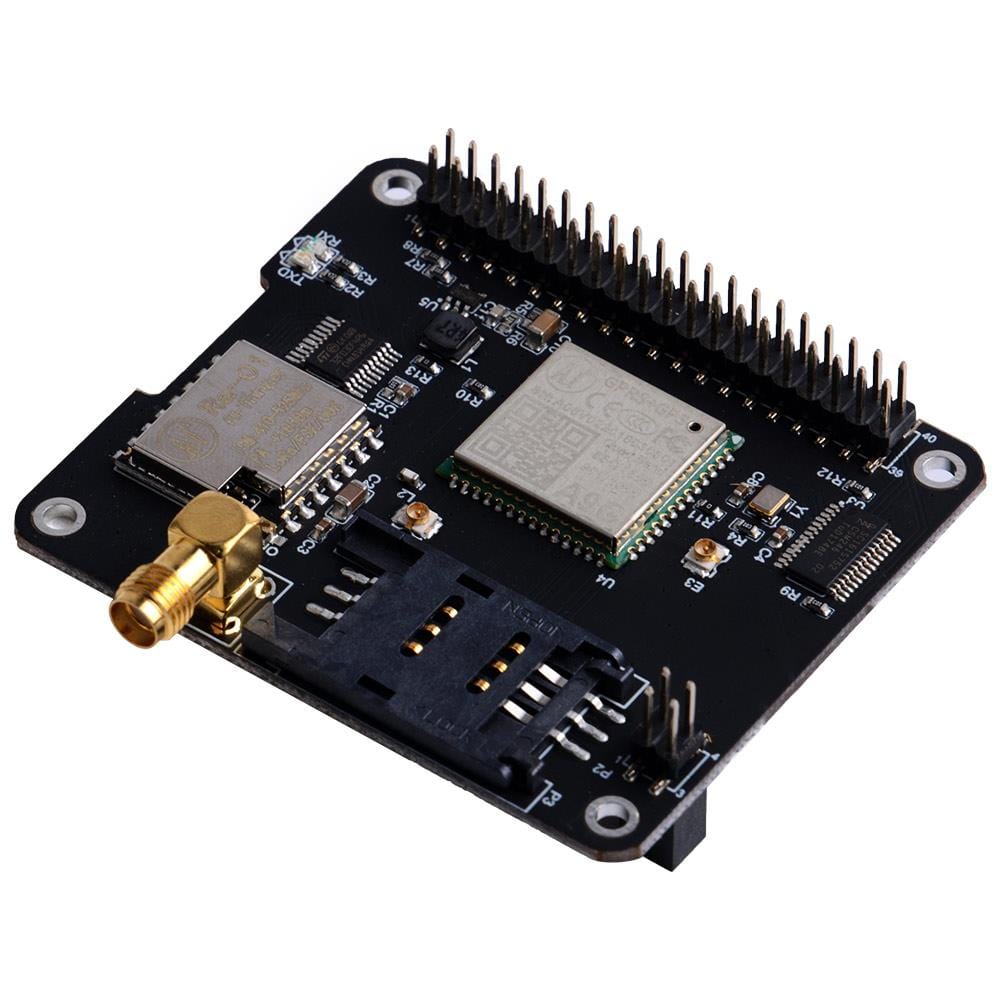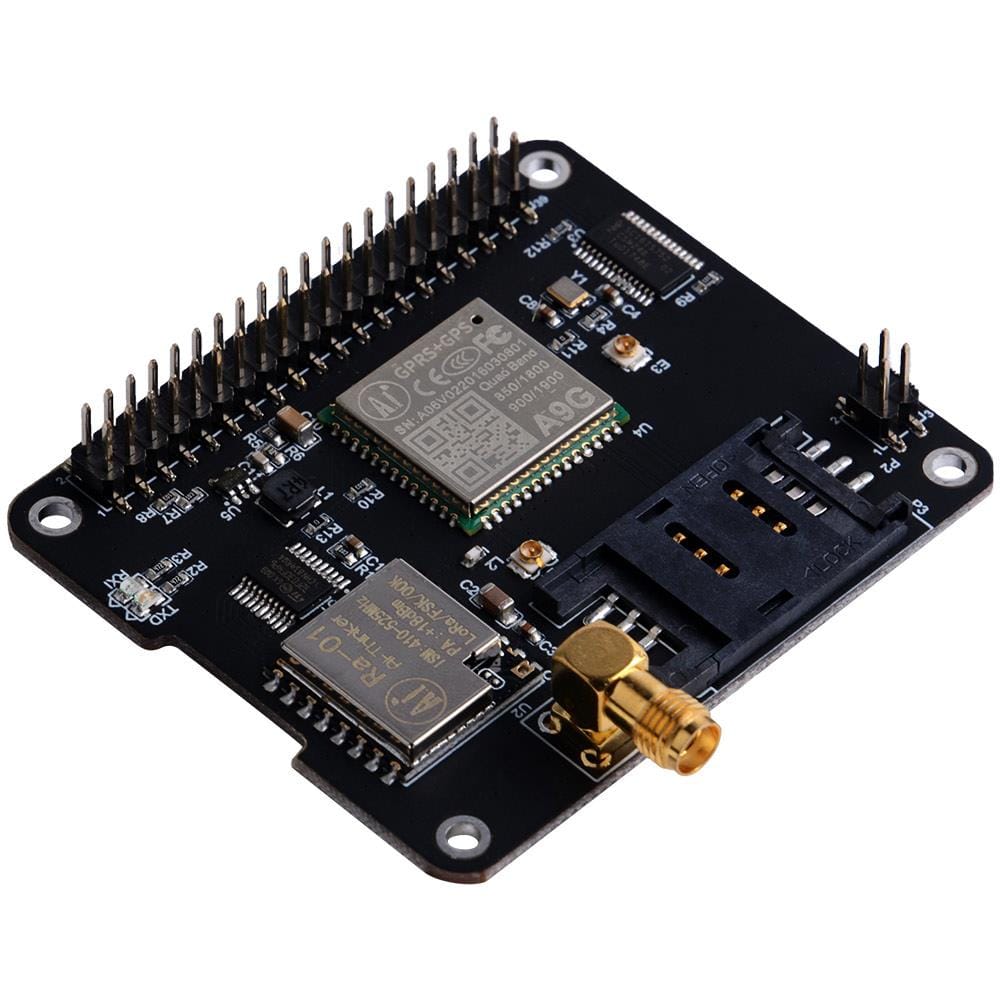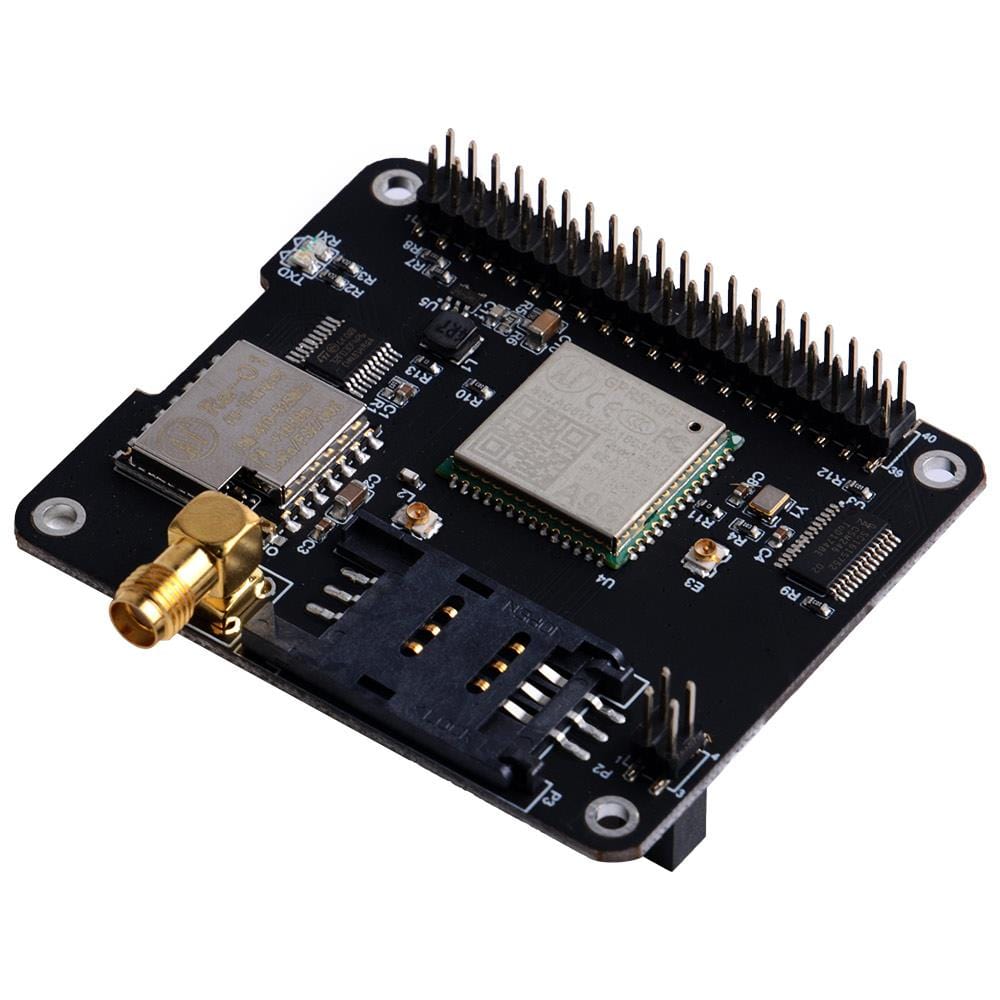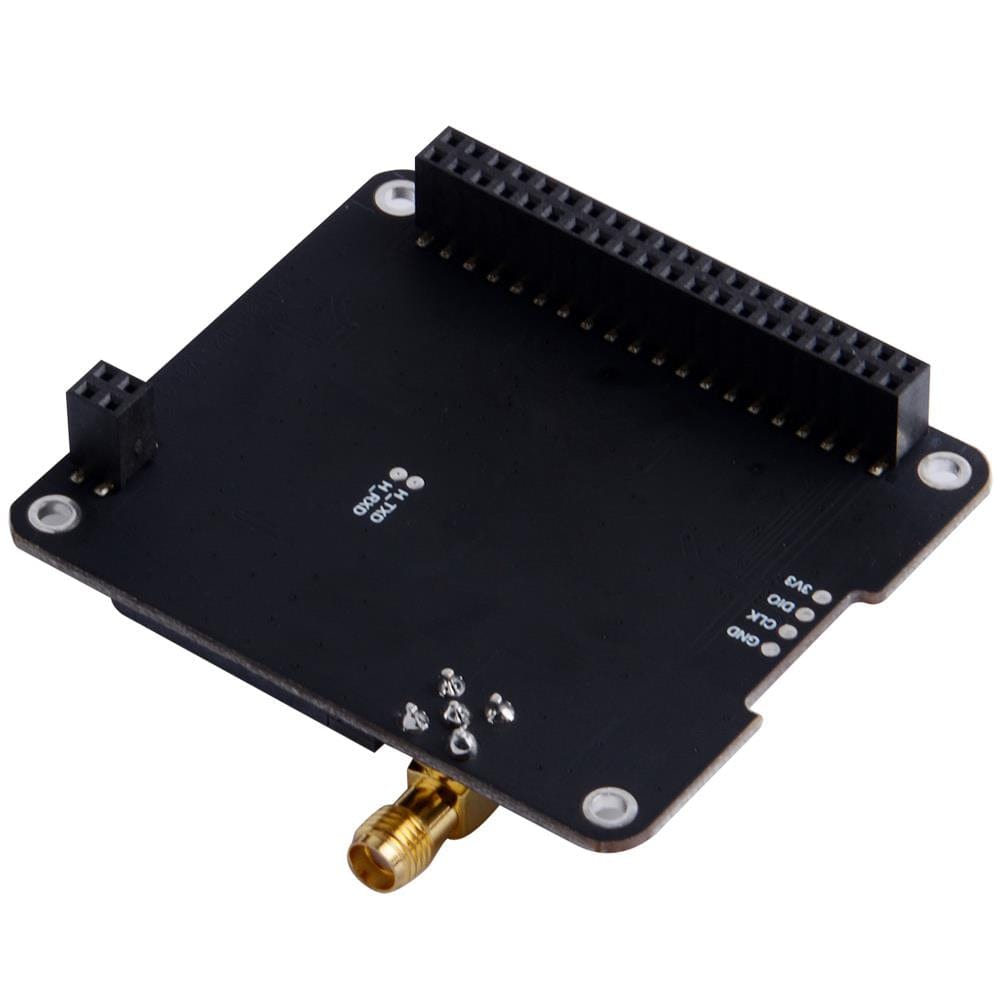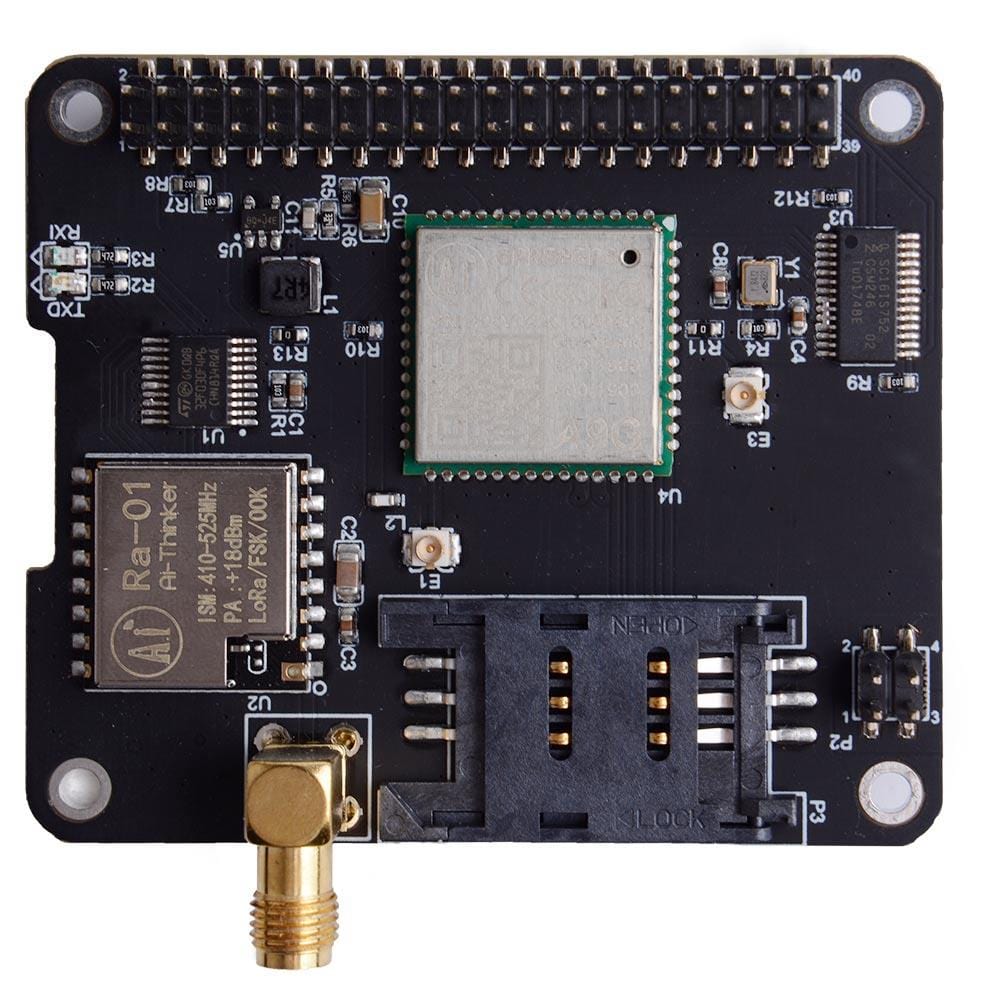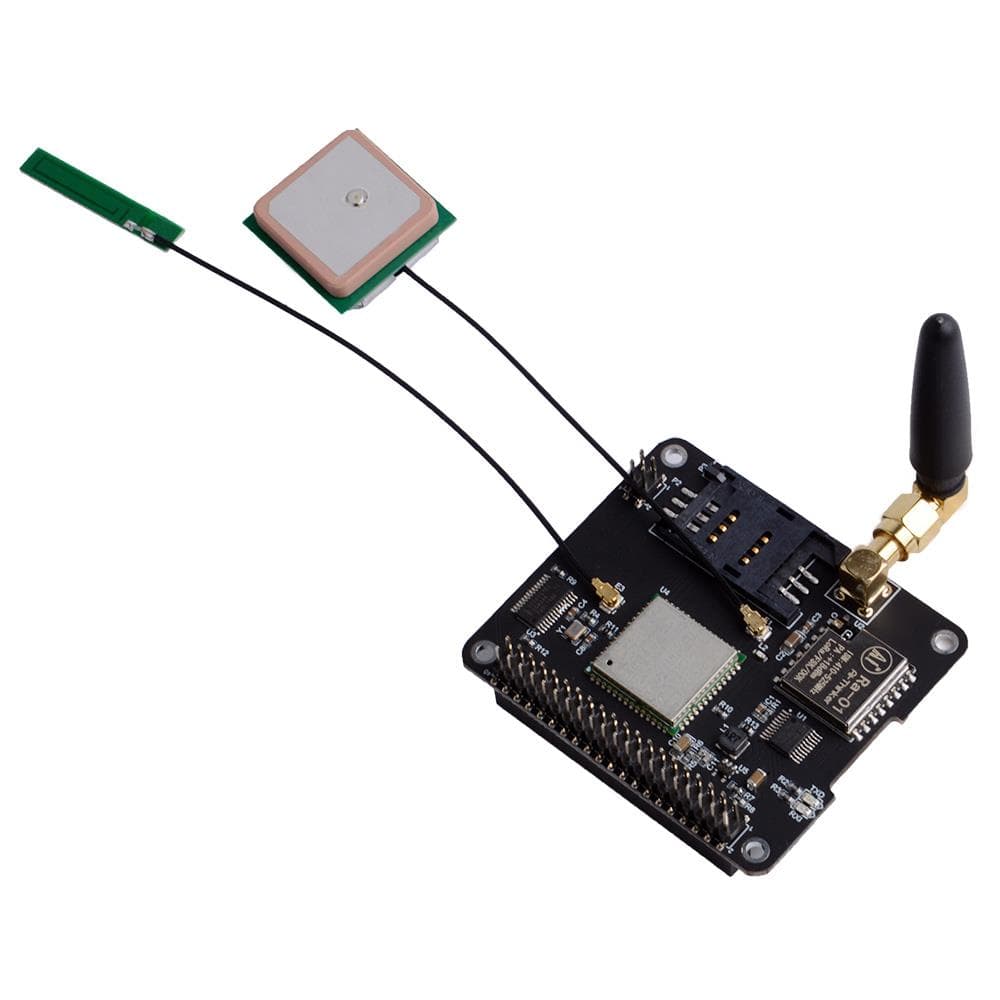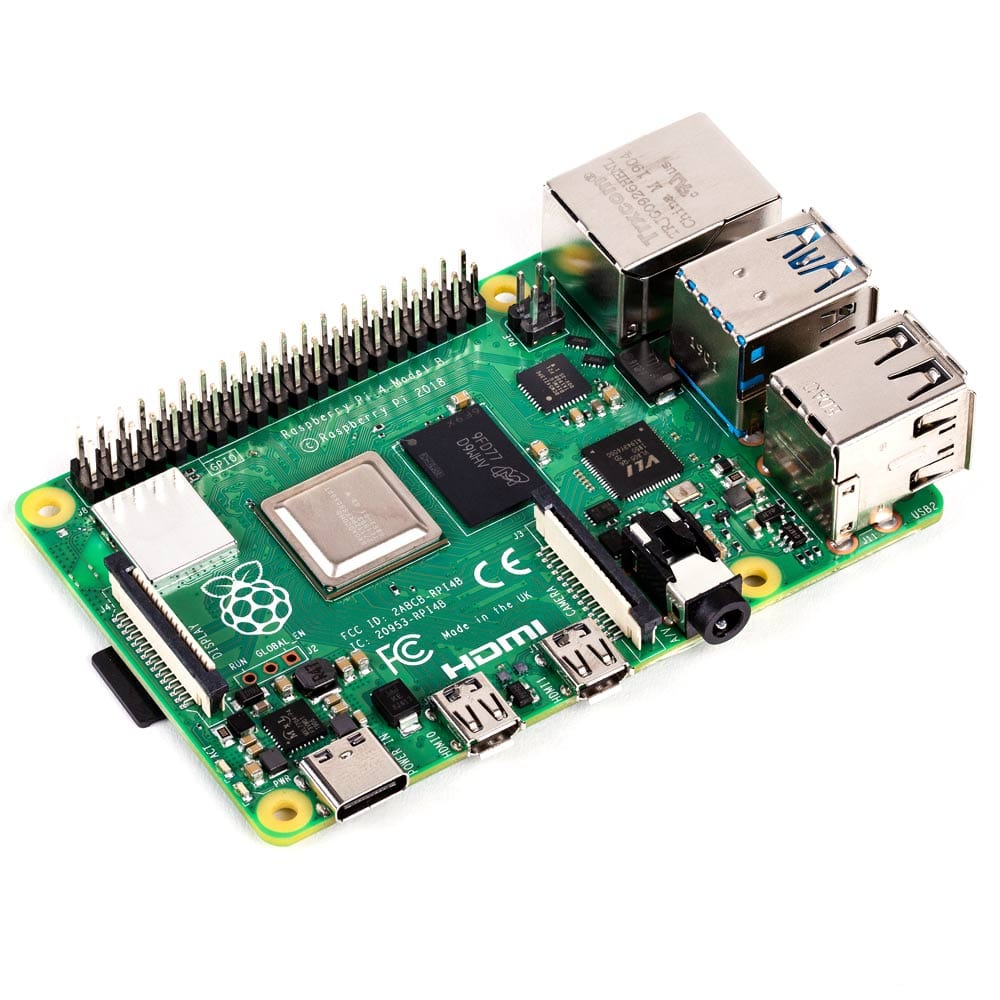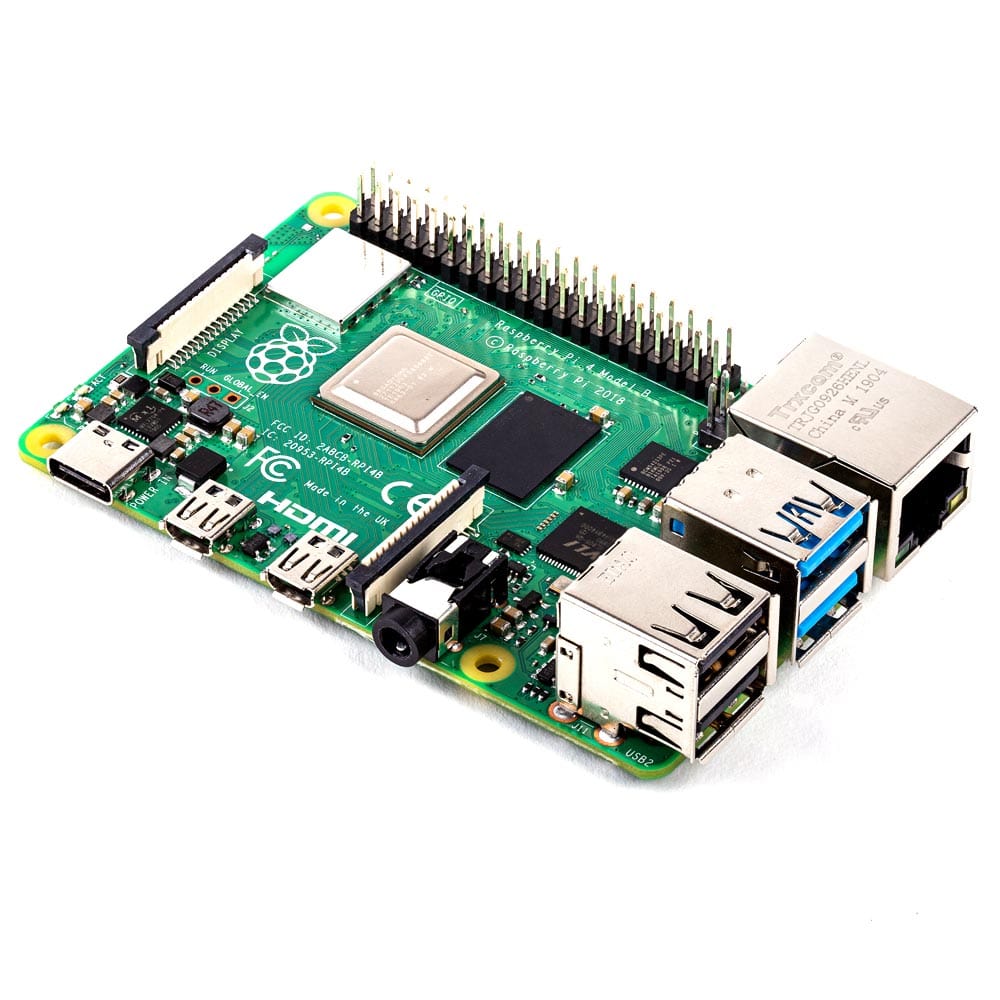The Docker Pi IoT Node (A) adds GPS/BDS (Beidou), GSM and LoRa to your Raspberry Pi!
The board communicates to the Raspberry Pi over I2C to control LoRa & GSM connectivity as well as the GPS/BDS module through the SC16IS752 chip.
For LoRa, the board uses an AI-Thinker RA-01 module which supports 410MHz - 525MHz bands.
The unit can also be controlled directly without programming and the Raspberry Pi's GPIO pins are extended to allow stacking if required.
The unit comes complete with two antennas for long-range sensor applications and a high-gain built-in ceramic active antenna for GNSS.
Note: Raspberry Pi not included.
Features
- Programmable
- Control directly (without programming)
- GPIO Pins extended for stacking
- GPS/BDS Support
- GSM Support
- Lora Support
- Can Stack with other boards
- Independent of mainboard hardware (requires I2C support)
- Supports 410MHz - 525MHz LoRa bands
Specifications
GPRS
- Low power consumption, standby sleep current <1mA
- Support GSM/GPRS four frequency bands, including 850, 900, 1800, 1900MHZ
- GPRS Class 10
- Support GPRS data service, maximum data rate, download 85.6Kbps, upload 42.8Kbps
- Support standard GSM07.07, 07.05 AT commands, and access the serial port through I2C interface conversion
- AT commands support standard AT and TCP/IP command ports
GPS
- Support BDS/GPS joint positioning
- Support A-GPS, A-BDS
- Support standard SIM card
LoRa
- Transmission distance:500 Meters (RF parameters: 0x50 @ China City)
- Support FSK, GFSK, MSK, GMSK, LoRaTM and OOK modulation methods
- Ultra-high receiver sensitivity as low as -141 dBm
- Support preamble detection
- Packet engine with CRC, up to 256 bytes
- LORA transceiver indicator
- Easy TX/RX by Docker Pi
- AI-Thinker RA-01 module - supports 410MHz - 525MHz bands
Package Contents
- 1 x IoT Node(A) Board
- 1 x Instructions
- 4 x M2.5*12 + 6 standoffs
- 4 x M2.5*6 Nut
- 4 x M2.5*6 Half-round head screw
- 1 x 433MHz L-Shaped Tape Antenna
- 1 x 2.4GHz PCB Antenna
- 1 x GPS/BDS High Gain GPS Built-in Ceramic Active Antenna
Resources
